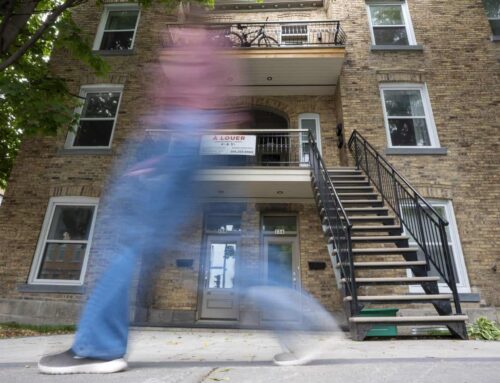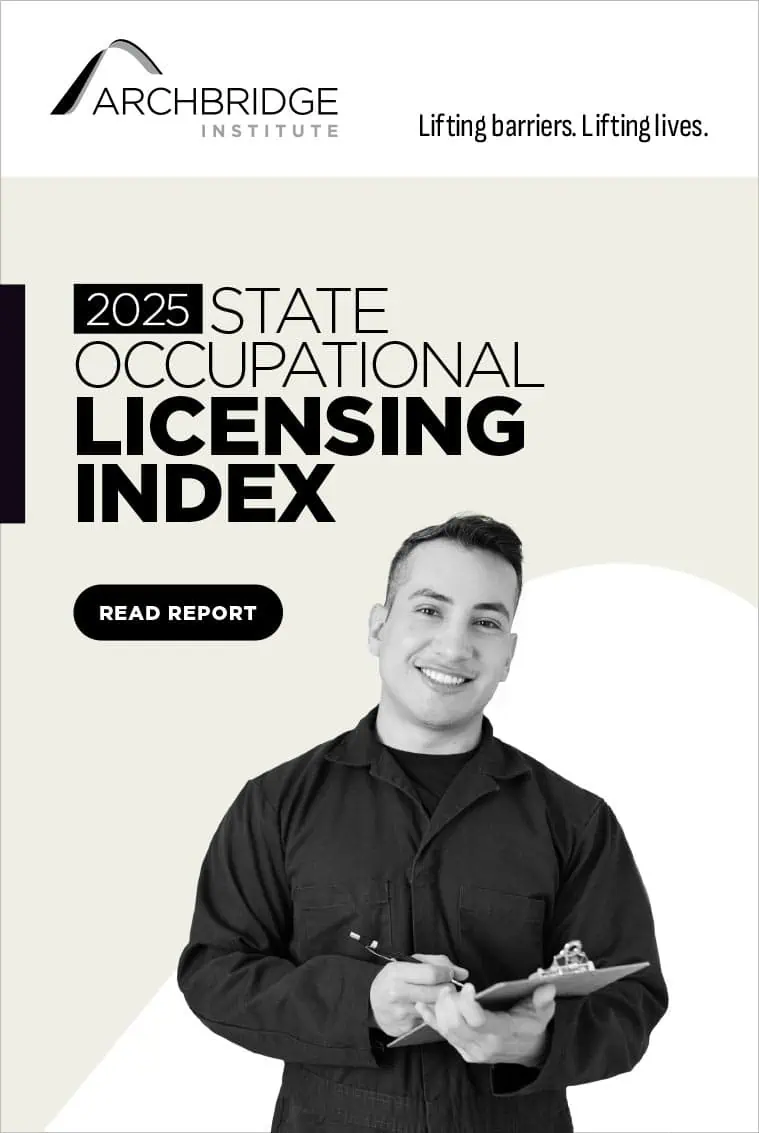
Excerpt:
A report published early this month found that easing licensing requirements for physicians increases patient access to healthcare, especially among older people, and reduces cost barriers to treatment. Occupational licensing reform has been a simmering issue for years, and one that draws rare bipartisan support. This sort of research demonstrates just how important reform is even for professions that deal in matters of life and death. Keep that in mind as we look at Archbridge Institute’s 2025 State Occupational Licensing Index to see where things are getting better and where they’re not.
“In 2025, the state with the highest occupational licensing burden is Oregon (#1), followed by Tennessee (#2), Texas (#3), Kentucky (#4), and Florida (#5); the state with the lowest occupational licensing burden is Kansas (#51), preceded by Missouri (#50), Wyoming (#49), Indiana (#48), and New York (#47),” write Noah Trudeau, Edward Timmons, and Benjamin Seevers, authors of the “human flourishing” think tank’s latest annual Index. “The overall state rankings show that traditionally ‘blue’ and ‘red’ states alike struggle with occupational licensing requirements, and there is opportunity for bipartisan reform across the country’s various regions.”
There’s not just opportunity for bipartisan reform—there’s also appetite for it. The last three presidents have all favored easing occupational licensing requirements. In 2015, the Obama administration published a report revealing that “more than one-quarter of U.S. workers now require a license to do their jobs, with most of these workers licensed by the States” up from about 5 percent of jobs in the 1950s. This is a problem, the report added, because “there is evidence that licensing requirements raise the price of goods and services, restrict employment opportunities, and make it more difficult for workers to take their skills across State lines.”
…
The best reform, by far, is eliminating licensing requirements for jobs and letting certifications, employment history, reviews, and word of mouth speak for the quality of people’s work. But that can be a tough sell for people sold the line that licensing somehow protects them, especially in potentially risky areas like healthcare. That leaves universal license recognition a popular step in recent years, given it’s difficult to argue that standards and legal liability for work vary much across the U.S.
“As of 2025, 28 states have adopted some form of universal licensing recognition,” write Trudeau, Timmons, and Seevers. “It is important to note that the potential effectiveness of the reform varies depending upon two key provisions. First, some states have ‘substantially equivalent’ or ‘substantially similar’ clauses, thus limiting the number of workers that can utilize the reform. Second, some states have residency requirements that also can limit the ability of workers to utilize the reform.”
Arizona, for example, has a residency requirement (you must live in-state to take advantage) but doesn’t require that licenses issued elsewhere be “substantially similar” to those issued locally. That’s enough to earn the state a silver medal in Archbridge’s rankings and a decent slot in the Index. Just how important implementing full reform can be is demonstrated in a recent staff report by Yun Taek Oh and Morris Kleiner, published by the Federal Reserve Bank of Minneapolis.
Read the full article at Reason.
Read the 2025 State Occupational Licensing Index report here.





